'Take Care of Maya' trial: Defense witnesses continue to question Maya's CRPS diagnosis
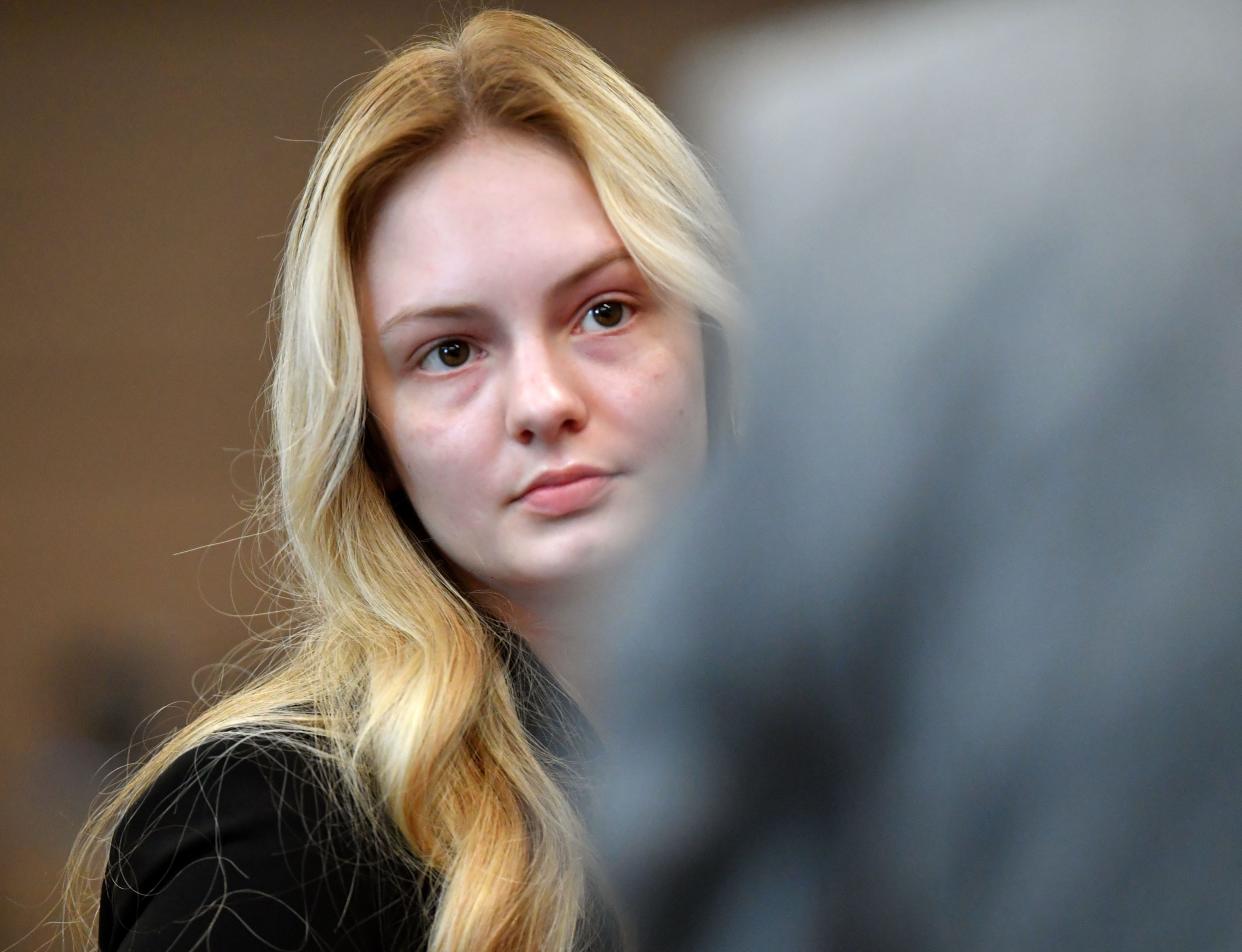
- Oops!Something went wrong.Please try again later.
- Oops!Something went wrong.Please try again later.
The defense for St. Petersburg-based Johns Hopkins All Children's Hospital is calling into question Maya Kowalski's diagnosis of Complex Regional Pain Syndrome through the testimony of a pediatric pain medicine expert.
Dr. Elliot Krane, who's spent the past couple of decades focused on pediatric pain medicine, told the jury that based on his review of all of Maya's medical records presented to him by the defense but not on his own physical examination, he doesn't believe Maya met the criteria to be diagnosed with CRPS in 2015.
Testimony from an allergy and immunologist physician on Monday indicated there was some suspicion of Munchausen Syndrome by Proxy almost a year before Maya was admitted into All Children's Hospital in October 2016.
Keep reading: All Children's doctors, nurses testify in 'Take Care of Maya' trial
In case you missed it: Kowalskis testify about personal, economic impact for damages
The Kowalski family sued All Children’s Hospital in 2018 for $220 million more than a year after the family matriarch, Beata Kowalski, took her life following allegations she was abusing her daughter.
The family took 10-year-old Maya Kowalski to All Children’s Hospital in October 2016 after she complained of severe stomach pain, believed by the family to be a relapse of her Complex Regional Pain Syndrome, a disorder that impairs the central nervous system and heightens pain sensations.
Maya Kowalski was separated from her family, friends, and community following a Florida Department of Children and Families investigation and ordered by a judge to remain at the hospital. She remained separated for three months before reuniting with her father and brother shortly after her mother’s death.
Expert specializing in pain medicine: Maya did not meet criteria for CRPS
In Krane's opinion, after reviewing all of Maya Kowalski's medical records and the depositions of various doctors who testified in the case, Maya did not meet the criteria to be diagnosed with CRPS in 2015.
An expert specializing in pain medicine and a professor emeritus from Stanford University of Medicine, Krane has focused on pediatric pain medicine for the last 20 to 25 years, he told the jury Tuesday, opening a multidisciplinary clinic in California focused on pediatric pain medicine.
The retired pediatric anesthesiologist was called in as an expert witness to testify about his analysis of the standard of care given to Maya by the various doctors and institutions that treated Maya, including Dr. Anthony Kirkpatrick, Dr. Ashraf Hanna and Dr. Fernando Cantú Flores — all three doctors who treated the then 10-year-old with ketamine infusions.
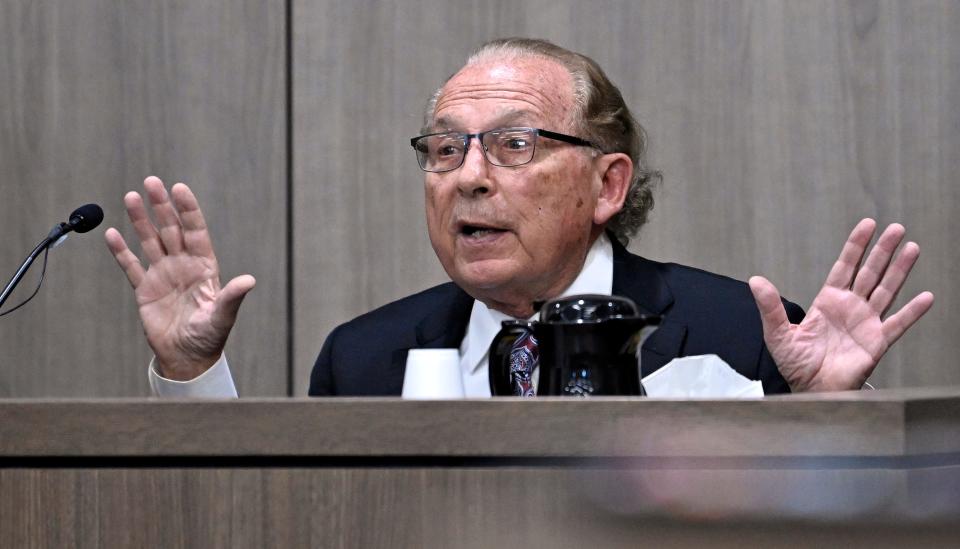
In all three cases, he testified the physicians did not meet the standard of care with their treatments for CRPS, adding that both Kirkpatrick's and Hanna's record-keeping were terrible.
Krane explained that the foundation for treating CRPS is a combination of physical, occupational, and psychotherapy, with other pain medications being used as support. He added that low-dose ketamine infusions are used in refractory cases at his clinic when the therapies haven't worked. In those cases, patients are taken to a hospital for five-to-seven-day infusions which typically range from 0.3 to 0.6 milligrams per kilogram per hour.
In comparison, Krane said Kirkpatrick started Maya on ketamine infusions of 1 milligram per kilogram per hour and Hanna continued administering high doses of ketamine. Cantu testified earlier in the trial that when Maya was in a ketamine coma, she first started off receiving 3 milligrams per kilogram per hour of ketamine which slowly increased to 7 milligrams per kilogram per hour. It was also Hanna who sent Maya to the hospital in October 2016 after the high doses of ketamine weren't working.
Through building her tolerance to the large doses of ketamine, Maya was also becoming physically dependent, Krane said.
"She was agitated, she was screaming, she was screaming for ketamine, those could have been withdrawal symptoms," Krane said of Maya's behavior in the ICU during her admission.
Maya Kowalski during her earlier testimony refuted claims that she'd screamed or cursed at nurses and doctors during her admission, stating she began screaming when nurses attempted to put a tube down her nose without giving her sedation first.
More trial coverage: Maya Kowalski testifies about hospital experience
Follow the 'Take Care of Maya' trial: Case worker contests identity of voice in audio clips in 'Take Care of Maya' trial
Krane added that there was harm done to Maya in that she was denied proper care prior to her hospitalization at All Children's Hospital. Instead of being referred to a center that specializes in CRPS, Kirkpatrick administered ketamine and when it didn’t provide benefits, he sent her to Mexico. Months later, she was worse — she'd lost weight and her appetite, was still wheelchair-bound, and was being admitted to a hospital for severe abdominal pain.
While Krane testified that based on his review of records Maya didn't meet the criteria for CRPS, he admitted he never physically examined Maya to determine if she does or does not have the condition, and he added he couldn't say whether she currently has the condition as of today.
Following questions submitted by the jury, Anderson questioned whether Krane realized that over the 10 years, Cantu had performed the ketamine comas, there hadn't been a single death or major injury. Krane answered by questioning how he could know that since the procedures were being done in Mexico.
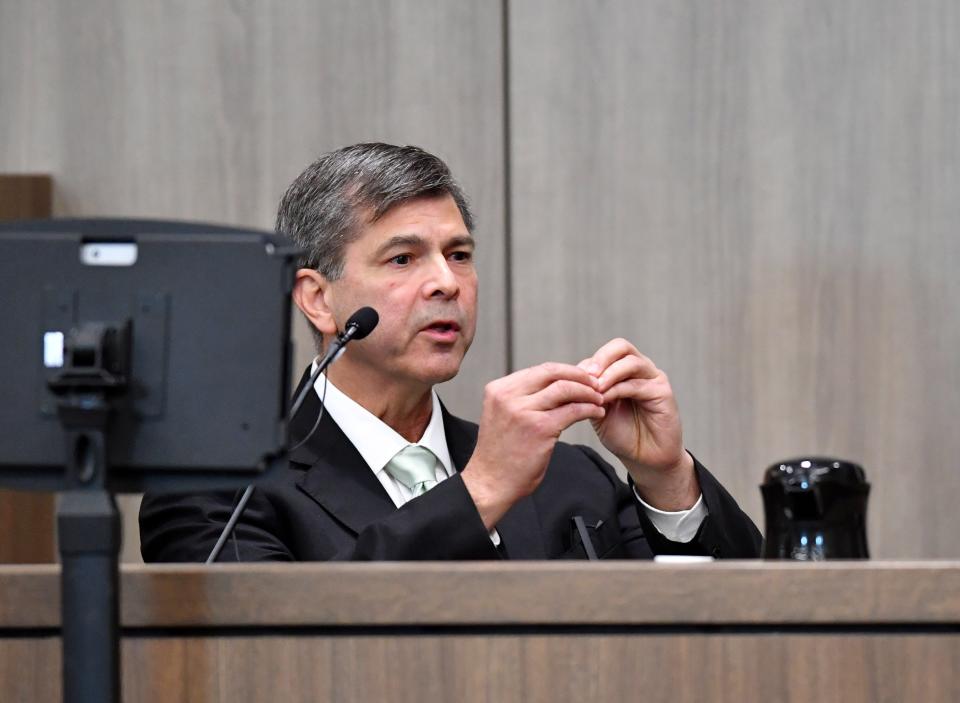
Attorneys continue to circle back to sexual abuse allegations
During the questioning of Jennifer Katzenstein — a pediatric neuropsychologist working for All Children's Hospital since July 2015 and who visited with Maya multiple times for therapy during her stay — the jury was asked to step out after Anderson raised an objection which circled back to the sexual abuse allegations raised earlier in the trial.
Anderson raised his objection following defense attorney Ethen Shapiro’s question of if Maya had ever complained to Katzenstein about “any concerns she had about mistreatment at the hospital,” to which Katzenstein said no.
Anderson argued that this grossly misrepresented some of the facts of the case to the jury, painting Maya as being untruthful. In addition, Anderson said the jury had previously heard Dr. Jacqueline Henschke, a child and adolescent psychiatrist, testify that Maya would be more likely to open up to a woman therapist, and here was one of the people Maya would report such mistreatment to telling the jury Maya never reported any mistreatment.
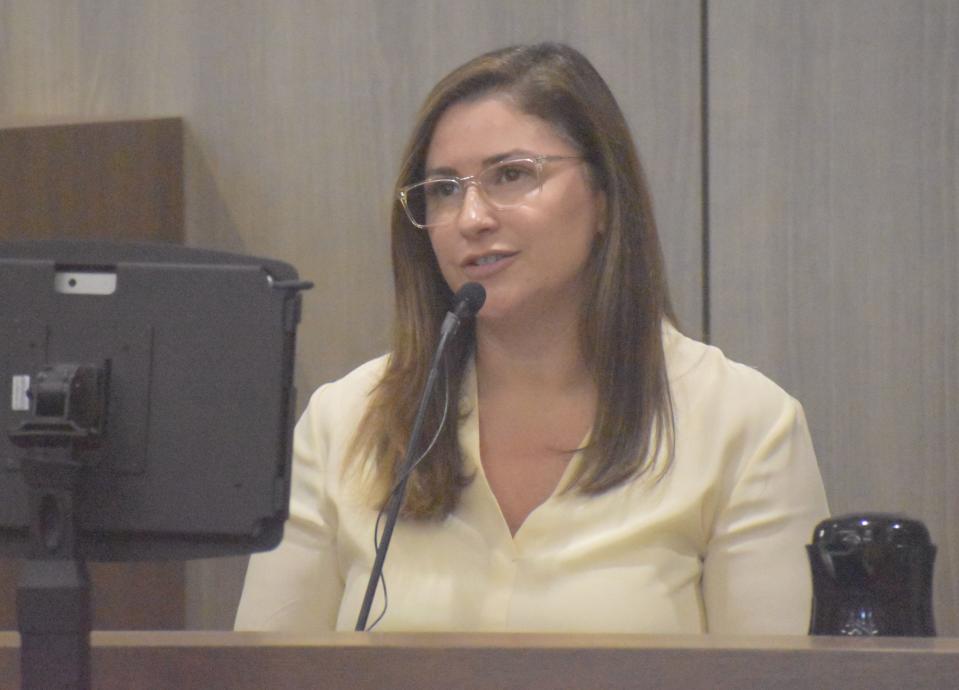
Anderson first brought up the sexual abuse allegations almost two weeks after jury selection began for the trial. He told the judge and the defense he had new information that Maya Kowalski had recently recalled about a situation between her and an unidentified man wearing a white lab coat which could be a possible sexual abuse encounter after she was admitted to Johns Hopkins All Children's Hospital in October 2016.
Anderson said that he found a witness who Maya had confided in two years following her stay at the hospital and that there was a line in one of Katzenstein's reports during the early days of Maya's stay where it indicates she told Katzenstein about the incident.
At the time, the defense expressed surprise at the allegations and the fact that they were being made after a jury had been selected, sworn in, and had heard several days' worth of testimony.
'Take Care of Maya' trial: Attorneys finish family's side, defense begins their case
Stay in the loop: Sarasota judge expresses frustrations with attorneys in 'Take Care of Maya' case
After Sarasota Circuit Court Judge Hunter Carroll denied the family’s motion to amend or add the sexual abuse allegations about a week later, the hospital released a statement echoing its surprise at the allegations and stating it launched an investigation into the issue.
During the proffer or questioning of the witness outside the presence of the jury on Monday, Anderson pressed Katzenstein about the note she’d included where Maya told her about the encounter with the unidentified man.
Katzenstein explained she hadn’t reported the incident because Maya had told her it happened "previously," which Katzenstein took to mean prior to Maya's hospitalization at All Children's Hospital, and that is why she used the term "previous" in her notes. Katzenstein further stated that the incident appeared to have happened during an examination.

"This is not a reportable offense, this was part of typical medical care," Katzenstein said. "There was no abuse, neglect or abandonment."
Allergist specialist suspected Munchausen Syndrome by Proxy
In late October 2015, Beata Kowalski took 9-year-old Maya to see Dr. Elvin Mendez, an allergy and immunology specialist in the Lee Memorial Health System in Port Charlotte, for a second opinion regarding a possible immunodeficiency.
Mendez recalled that Beata Kowalski was an excellent historian about Maya's disease, and during the initial meeting with the two, he observed that Maya appeared to be in pain — shifting and moaning while in her wheelchair. Mendez was able to do a physical examination without eliciting more pain from Maya.
Mendez suspected after his examination that Maya didn’t have other immunodeficiencies and that they were dealing with “much bigger medical problems.”
What to know: Father takes stand, Sarasota judge denies 2 mistrial motions
More: 'Take Care of Maya' trial: Pain medicine specialist testifies about Maya's crippling pain
“What was striking about her history was she had been through numerous ER visits, numerous physician visits, and a lot of steroids, and to an immunologist, that’s striking because steroids are a double-edged sword,” Mendez said. “They solve a lot of problems, but they also cause problems.”
He explained that physicians are trained to detect if there are signs of child abuse, and told the jury that with Maya, things just “did not add up,” leading him to suspect factitious disorder. He pointed to the fact that Maya changed from moaning and showing discomfort in her first visit, to acting happy and being distracted during her second visit in December 2015.
Mendez added he wanted Maya’s primary doctor, Dr. John Wassenaar, to look further into Maya’s condition and see if there was a neurological problem.
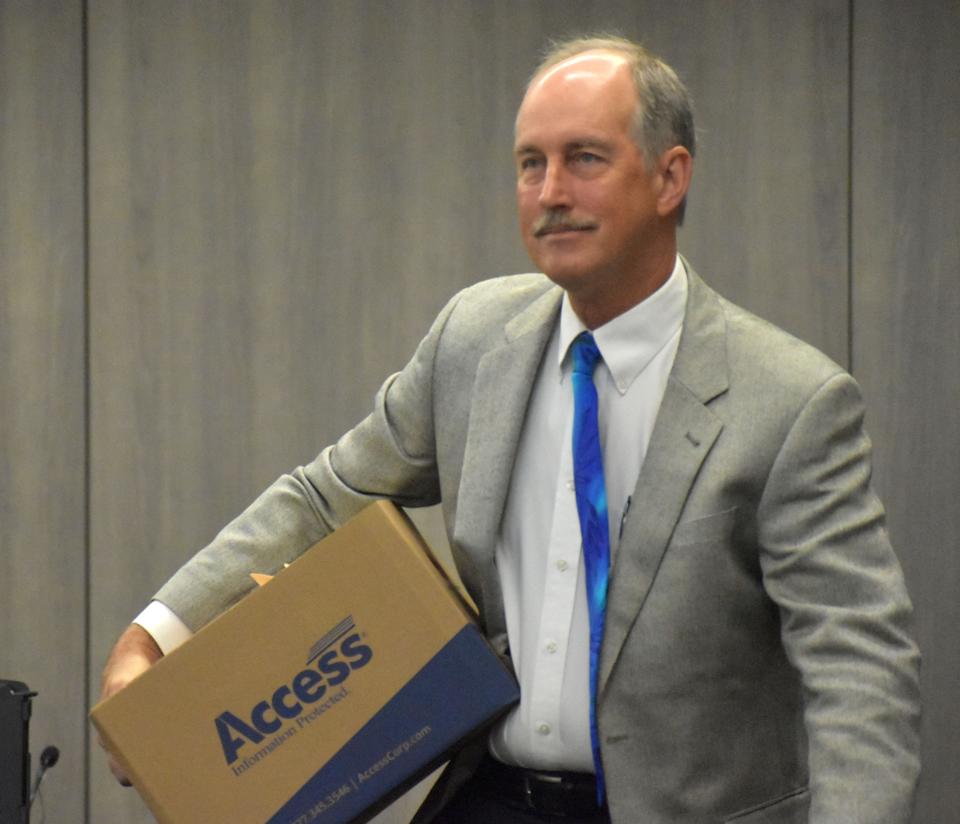
When questioned by Greg Anderson, the family’s attorney, about whether Mendez ever called anyone from the state to report his suspicions of Munchausen by Proxy, Mendez said he hadn’t.
“Just because I suspected, I felt like I didn’t have to report it,” Mendez said. “I felt like the primary should know.”
Mendez also further seemed to contest Maya’s severe asthma, which he noted was written in a lot of medical records. In his experience, those with severe asthma who are admitted to a hospital for a few days don’t come out of the hospital with completely fine breathing tests, and the lungs would have indicated some scarring.
Gabriela Szymanowska covers the legal system for the Herald-Tribune in partnership with Report for America. You can support her work with a tax-deductible donation to Report for America. Contact Gabriela Szymanowska at gszymanowska@gannett.com, or on Twitter.
This article originally appeared on Sarasota Herald-Tribune: 'Take Care of Maya' trial: Expert denies CRPS diagnosis

